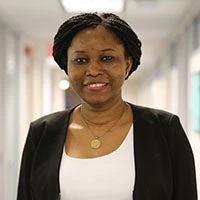The Global Knowledge Partnership on Migration and Development (KNOMAD) is hosting an international symposium on environmental change and migration from 04-05 June in Washington DC on "Environmentally-Driven Migration: Improving the Evidence Base for Effective Policy Making." In this regard, a call for papers is launched and the deadline for submission is March 6th.
Rationale
Environmental change is one of the many reasons that prompt people to migrate or flee, but its importance in these flows is rising as climate impacts are getting stronger. Simultaneously, environmental change can also inhibit migration or lead governments to relocate households away from affected areas. Despite the greatly improving evidence-base on these linkages over the past three decades, several knowledge gaps persist that often relate to data challenges. It remains necessary to improve knowledge and data to better map, understand, project, and address environmental migration, displacement, and planned relocation. Analyses of continuing data gaps and strategies for innovative data use are key to rise to the challenge.
At the same time, the topic is important to policy makers from different fields, including those focusing on policies for disaster risk management, climate adaptation, development, environment, urban planning, and migration. Governments are beginning to think through how to manage the implications of these interconnections, but the translation of scientific insights into coherent policy and action is still in its infancy. Evidence-based strategies are scarce. As climate impacts and environmental degradation are multiplying worldwide, it remains a major concern to improve the science-policy interface and to help states develop and implement coherent approaches to the topic.
Symposium
Against this backdrop, the Thematic Working Group on Migration and Environmental Change, on behalf of the Global Knowledge Partnership on Migration and Development (KNOMAD), is hosting an international symposium on environmental change and migration from 04-05 June in Washington, D.C. KNOMAD is a global hub of knowledge and policy expertise on migration and development issues. The expert meeting will bring together leading scholars on data gaps, innovative data use, and policy approaches to environmental change and migration to advance the research agenda and move towards concrete policy development in this area. The symposium seeks to link to important ongoing discussions in a variety of international fora, including those launched by the Warsaw International Mechanism on Loss and Damage (WIM) and the Platform on Disaster Displacement (PDD).
The symposium aims the following goals:
Discussing working papers on innovative approaches to data, identifying continuing gaps in data, discussing ways of sharing data,
Providing advice to the Thematic Working Group on how KNOMAD could best further the knowledge base on environmental change and migration.
Generating ideas for new data collection that the Thematic Working Group can promote and/or undertake itself in following years to better inform policy making.
Call for Proposals
The Thematic Working Group on Migration and Environmental Change, on behalf of KNOMAD, seeks proposals for working papers (6,000-7,500 words) and research briefs (2,000-3,000 words) that elucidate
- gaps in survey and administrative data related to environmental change and migration with some country/regional case studies
- metrics, data and research needed to address drivers of environmental displacement and to formulate policies to manage likely movements;
- strategies and methodologies for use of innovative data—including social media, cellphone data and geo-spatial data—to learn more about drivers and impacts of environmental change and migration;
- mechanisms for strengthening data on environmental migration patterns within and between developing countries;
- evidence needed to determine if and how planned relocation should take place. Special attention will be given to concrete case studies; and
- data needed to strengthen governance and legal frameworks to manage environmentally driven migration at the national level and improve mechanisms for international cooperation.
Researchers from the Global South are specially encouraged to submit proposals.
Accepted papers will be distributed widely, including for circulation at upcoming events, such as the World Conference on Disaster Risk Reduction, the Conference of the Parties to the UN Framework Convention on Climate Change, the Global Forum on Migration and Development, meetings of the Task Force on Displacement and Platform on Disaster Displacement, and other relevant venues. Best papers will be submitted for publishing in the KNOMAD Papers Series.
Drafts of the papers will serve as the starting point for discussion in the symposium. All papers should be in English, using language that is accessible to policymakers and practitioners as well as researchers.
Proposals should be no more than four pages, single spaced, Times New Roman, 12pt. They should provide a brief summary of the paper to be produced under the consultancy, an outline of the paper’s contents and a short bibliography. In addition, the proposal must indicate the in-depth experience of the consultants that will enable them to meet the short deadlines for these papers. An honorarium of $3,000 will be offered to those invited to prepare full working papers, and $1,000 for research briefs.
Please submit proposals no later than March 6, 2020, to Nadege Desiree Yameogo, Focal Point for the Thematic Working Group, KNOMAD Secretariat at nyameogo@worldbank.org. The authors of research to be presented at the symposium will be notified by March 30, 2020.
For more detailed information please click this Link.
Organized by
THEMATIC WORKING GROUP ON ENVIRONMENTAL CHANGE AND MIGRATION of THE GLOBAL KNOWLEDGE PARTNERSHIP ON MIGRATION AND DEVELOPMENT (KNOMAD)
Chair: Susan Martin – Professor at Georgetown University (emerita)
Co-Chair:Kanta Kumari Rigaud – Lead Economist, World Bank
Head of KNOMAD: Dilip Ratha – Lead Economist, World Bank


Join the Conversation